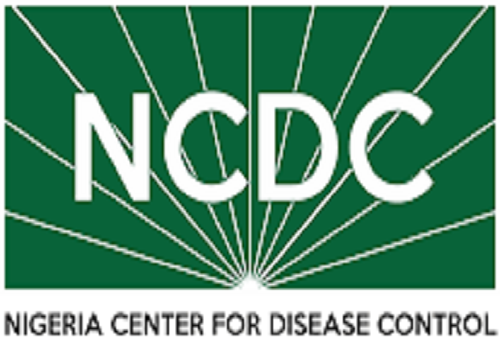The Nigeria Centre for Disease Control (NCDC) has called for improved hand
hygiene practices at points of care across the country, as Nigeria joins the world to celebrate 2022 World Hand
Hygiene Day (WHHD).
The Director-General of NCDC, Dr Ifedayo Adetifa, gave the advice at an event to commemorate the day at University of
Abuja Teaching Hospital (UATH), Gwagwalada, on Thursday.
The News Agency of Nigeria (NAN) reports that World Hand Hygiene Day is an international observance day
commemorated every year on May 5 to recognise global efforts to prevent the spread of infections through frequent hand washing with soap and water.
This year’s celebration has “Health Care Quality and Safety Climate or Culture” as its theme and “Unite for Safety: Clean Your Hands” as slogan.
Adetifa, who was represented at the event by Dr Tochi Okwor, the Assistant Director, Infection Prevention and Control (IPC), NCDC, said
good hand hygiene could save lives and prevent the transmission of infections.
He said that at the point of care, most health workers infect patients or get infected by patients, hence the need to promote hand hygiene.
According to him, hand hygiene is a crucial part of effective infection prevention and control; therefore, it is a priority for patients and health workers’ safety.
The director-general said it was the collective responsibility of everyone within the healthcare setting across the country to maintain high standards,
and foster a culture of institutional safety.
He added that “in 2019, NCDC, through the National Infection Prevention and Control (IPC) programme led the country’s efforts to make hand hygiene
day activities a major national event.
“It is to raise the consciousness of Nigerians on these efforts, and their role in saving lives.”
Adetifa said that the COVID-19 pandemic further exposed the risk of health care-associated infections in low and middle-income countries, particularly in
patients admitted to intensive care units.
“As simple as hand washing is, it actually saves a lot of lives. There is a circle of infection and we need to break that circle through hand washing. Hand washing can save us a lot.
“When a health facility’s quality and safety climate or culture value hand hygiene and IPC, this result in both patients and health workers feeling protected and cared for.
“To prioritise clean hands in health facilities, people at all levels need to believe in the importance of hygiene and IPC to save lives, by acting as key players in
achieving the appropriate behaviours and attitude toward it.
“In other words, health workers at all levels and people accessing healthcare facilities need to unite in ensuring clean hands.”
Adetifa said NCDC would continue to work with healthcare facilities and healthcare workers to achieve effective hand hygiene action at all points of care.
“In the last two years, NCDC trained over 40,000 healthcare workers on IPC, including hand hygiene in collaboration with the College of Medicine,
University of Lagos and Infection Control Africa Network (ICAN).
“It provided specialised one-year post-graduate training for 34 IPC practitioners working across different health facilities in Nigeria.
“It built a vibrant community of IPC practitioners firmly integrated into national and regional associations of infection control practitioners, the Nigeria Society for Infection Control (NSIC), and ICAN respectively.
“Built a network of 41 tertiary health facilities working collaboratively to become centres of excellence in IPC called Orange Network and the NCDC quarterly collects hand hygiene compliance data across the Orange Network as a national process indicator for IPC.’’
He explained that the NCDC had also developed a data repository and reporting platform for reporting hand hygiene assessments and level of hand hygiene compliance rates across the Orange Network.
He said that in collaboration with the agency’s partners, it established other IPC networks for 110 secondary health facilities from across eight states.
ALSO READ:COVID-19: NCDC registers 118 additional infections
Adetifa added it also collaborated with Robert Koch Institute, to implement a unique approach for IPC improvement including hand hygiene at health facilities that prioritised behaviour change and use of local resources called PALS.



